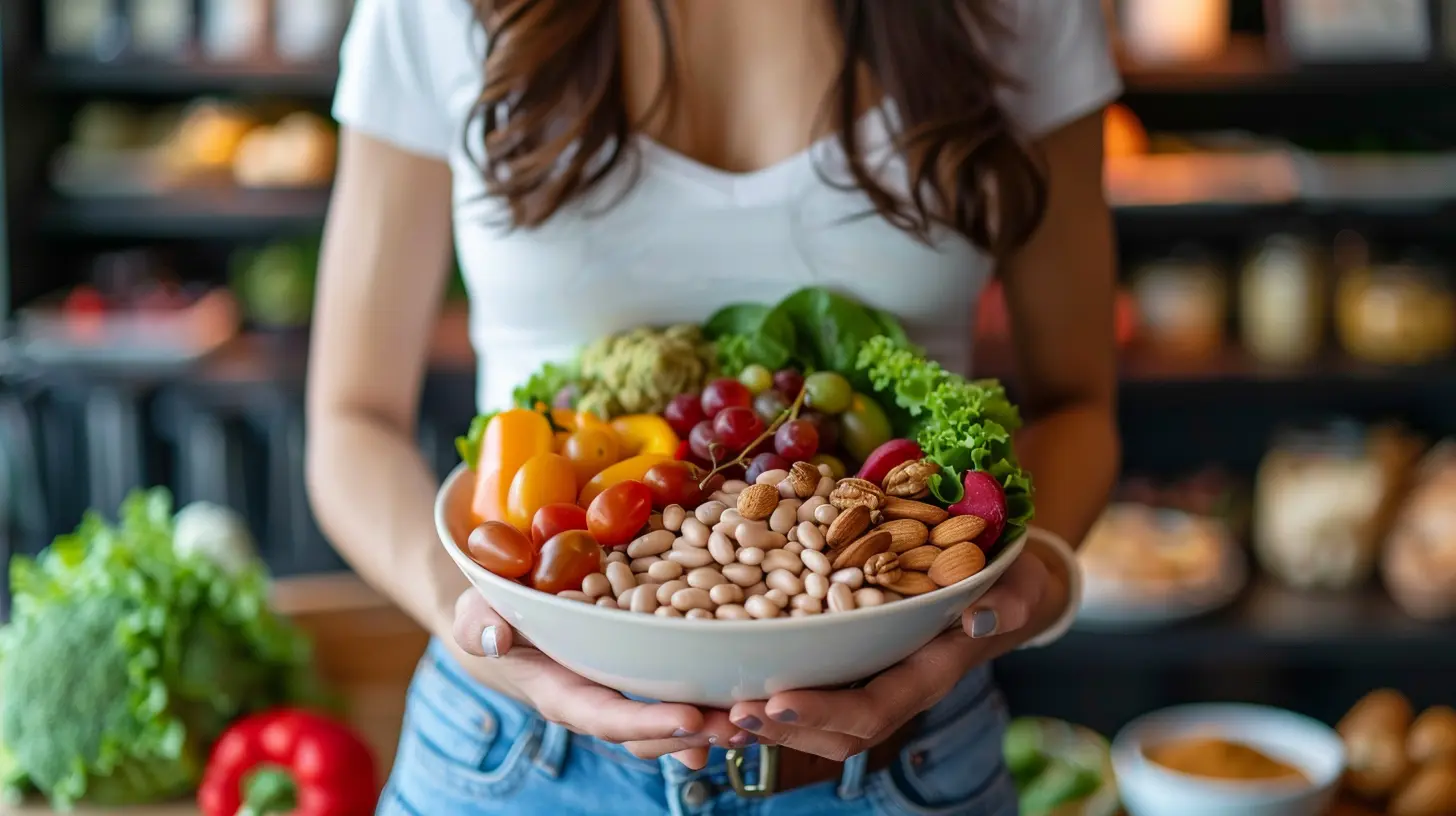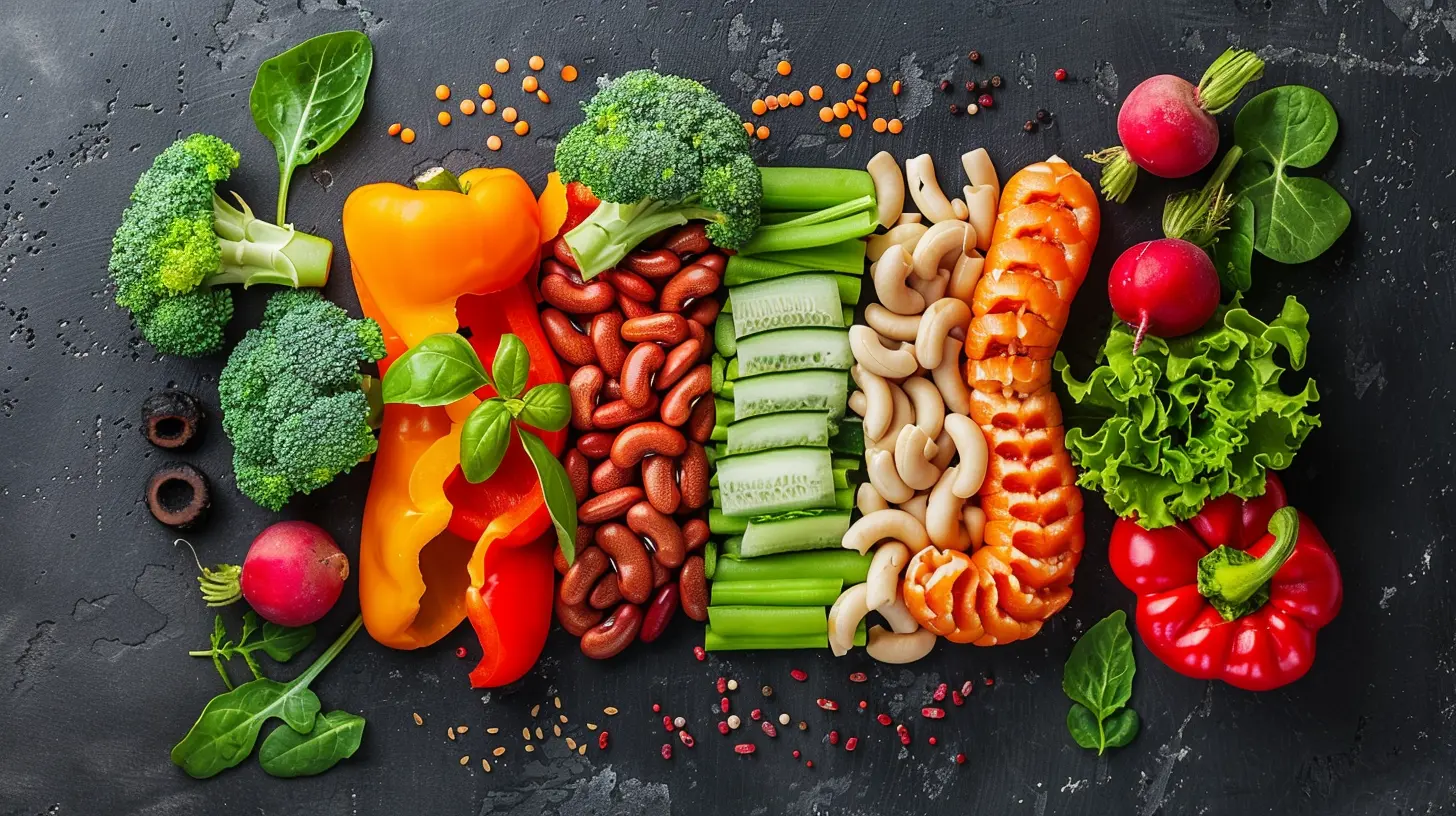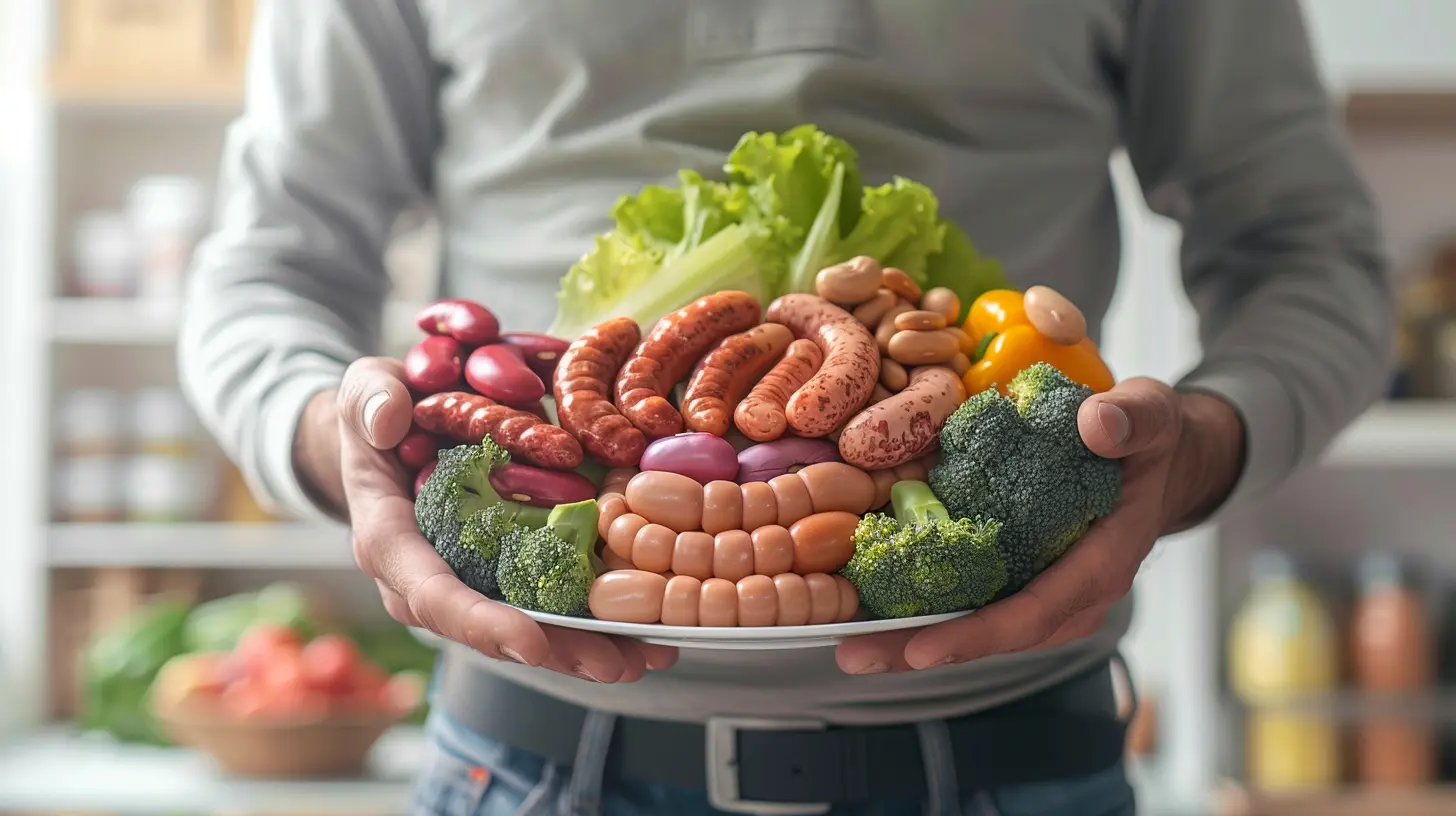What Your Gut Can Tell You About Food Sensitivities
21 July 2025
Let’s talk about your gut. Yes, that gut—the one rumbling like a thunderstorm after you polished off a supposedly “healthy” salad. Oh, the betrayal. One minute you're living your best life, gobbling down quinoa and kale like a wellness guru, the next you’re doubled over, cursing both the salad and the wellness blog that recommended it.
Here’s the truth bomb most people aren’t ready for: your gut knows things. Important things. Like which foods your body loves... and which ones it would rather mail back to the chef with a snarky note attached.
So, if you've ever wondered why your stomach throws a tantrum every time you eat dairy, or why your energy levels nosedive after a slice of bread, your gut is practically screaming the answers. You just have to pay attention.
Let’s decode what your insides are really trying to tell you about food sensitivities. Spoiler alert: they’ve got jokes, complaints, and the occasional silent treatment.
What Even Is a Food Sensitivity?
Before your gut takes center stage in this drama, let’s clarify the lingo. A food sensitivity is not the same as a food allergy. If an allergy is your immune system going DEFCON 1 and launching a full-blown attack, a sensitivity is like your body throwing passive-aggressive shade—less “life-threatening” and more “life-disrupting.”Think bloating, headaches, fatigue, skin flare-ups, brain fog... basically, the kind of symptoms that sneak up on you and make you question whether aging just started early or if your lunch had something to do with it.
Unlike food allergies, which can usually be confirmed with a quick scratch test, food sensitivities are the ultimate drama queens—subtle, elusive, and always arriving fashionably late to mess up your life.
Your Gut: The Original Food Critic
Forget Yelp. The real food critic is living in your digestive tract. Your gut microbiome—that hotbed of bacteria, fungi, and other microscopic drama queens—is constantly evaluating what you eat.When you chow down on something your gut doesn’t like, it doesn’t just roll its metaphorical eyes. Nope. It makes a scene. Gas, bloating, cramps, weird bathroom behavior? That’s your gut leaving a one-star review—loudly.
The Gut-Brain Gossip Line
Did you know your gut and brain are basically BFFs texting each other all day? This connection is so tight it has a name: the gut-brain axis. So, when your gut’s in a bad mood, your brain might be too. Ever eaten something that left you irritable, moody, or anxious? That’s not your imagination—it’s science. And possibly that dairy you swore you could “totally handle now.”
Signs Your Gut's Throwing Shade at Your Menu Choices
Okay, so how do you know if your gut is dragging your food choices behind your back? Here are the classic red flags:1. Bloating: The Belly Balloon
You had one slice of bread and now you look six months pregnant. Cute. Bloating is basically your gut yelling, “Hey! This doesn’t belong here!” Often caused by poor digestion or inflammation due to sensitivities, it’s your body's over-the-top way of airing its grievances.2. Gas: The Unsocial Butterfly
Silent but deadly or loud and proud, gas is your gut’s way of letting you know it’s working overtime. Certain foods (hello, beans and artificial sweeteners) are notoriously gassy. But when it’s random or chronic, your gut might be reacting to a sneaky sensitivity.3. Fatigue: The Food Coma from Hell
Feeling like you need a nap after every meal? That’s not just your inner sloth—it could be your gut working so hard to digest your “healthy bowl” that it zaps your energy. Or maybe gluten just doesn’t vibe with you.4. Skin Issues: Acne’s Revenge
Your skin is a tattletale for what’s going on inside. Rashes, hives, eczema, or random breakouts could be due to inflammatory reactions triggered by food sensitivities. Basically, your gut is using your face as a protest sign.5. Brain Fog: When Your Brain Goes on Strike
Ever try to concentrate after a big meal and wonder why your IQ suddenly dropped? Food sensitivities can trigger inflammation that crosses into your brain, leading to foggy thinking, memory issues, or that weird feeling like your brain has dial-up internet.
The Usual Suspects: Common Food Sensitivities
Let’s round up the usual culprits. If your gut’s throwing hissy fits, chances are one of these foods is the villain:🥛 Dairy
Lactose intolerance is the Beyoncé of food sensitivities—EVERYONE knows her. But it’s not just the lactose; some people react to the protein in dairy (casein). Next time you feel like a balloon after ice cream, it might not be the calories, but your gut begging you to break up with cheese.🌾 Gluten
The most controversial grain since ever. While celiac disease is an autoimmune condition, many folks have non-celiac gluten sensitivity, where they experience all the symptoms with none of the lab confirmation. Yay, mystery illnesses!🍞 Yeast
Who knew that the thing making bread fluffy could also make you puffy? Some people are sensitive to yeast, leading to bloating and digestive discomfort. And yeah, that includes beer. Sorry.☕️ Caffeine
Don’t shoot the messenger. But if your daily coffee ritual is followed by palpitations, anxiety, or trips to the bathroom, your gut and brain might be saying “no thanks.”🍬 Artificial Sweeteners
If your soda says “sugar-free” but you feel like you swallowed a chemistry set, blame the artificial sweeteners. Gut bacteria HATE them, and they often retaliate with bloating, gas, and bathroom drama.How to Decode the Gut Murmurs
So, how do you actually figure out what food is stirring up all the drama? There are a few science-backed (and not-so-sciencey) ways to listen to your gut’s complaints.1. The Elimination Diet: Old School Sleuthing
This is basically a food detective game. Cut out common culprits (like gluten, dairy, soy, eggs, and caffeine), then slowly reintroduce them one at a time while monitoring symptoms.Will this make you question your will to live when you’re halfway through Week 3 and all you want is a slice of pizza? Yes. But it’s one of the most reliable ways to pinpoint sensitivities.
2. Food Journaling: Your Gut’s Diary
Write down what you eat and how you feel after. Spoiler: you don’t need to go full Hemingway on this. Just jot down meals, snacks, and post-meal symptoms. Patterns don’t lie.3. At-Home Testing Kits: Pseudo-Science or Savior?
There are tons of at-home food sensitivity tests on the market, claiming to read your immune response through a finger prick. Some swear by them, others call them expensive nonsense. If you go this route, consider it a starting point, not gospel.4. Functional Medicine & Gut Health Experts
Sometimes, you need to bring in the gut-whisperers—functional medicine practitioners or dietitians who specialize in integrative health. They'll often look at the big picture (diet, stress, sleep, microbiome balance) and might order more comprehensive testing.Heal the Gut, Heal the Drama
If you’ve found your triggers, what next? Do you give up joy and live off air and gluten-free crackers forever? Not necessarily. Focus on healing the gut so it’s less reactive in the long run.🥬 Eat Real Food (Shocking, Right?)
Whole, unprocessed foods are your gut’s love language. Fresh veggies, fruits, unprocessed proteins, and fermented goodies like kimchi and sauerkraut can help balance your gut flora.🌿 Add Gut-Soothing Staples
Turmeric, ginger, licorice root, and bone broth? Not just for Instagram health bloggers. These anti-inflammatory powerhouses soothe the gut and reduce overreactions.🧘 De-Stress Like Your Gut Depends On It (Because It Does)
Chronic stress is like gasoline on the gut fire. Meditation, deep breathing, gentle movement—it’s not just woo-woo. It's gut-soothing medicine.💊 Probiotics and Prebiotics: The Good Guys
Bring balance to your gut by feeding it the good stuff. Prebiotics (like fiber) feed your good bacteria, while probiotics (found in yogurt, kombucha, and supplements) help populate the healthy squad.Final Gut Feelings
Listen, your gut isn’t just being dramatic (okay maybe a little, but for good reason). It’s full of wisdom, and if you stop brushing off the gas, bloating, and mystery fatigue, you might uncover the root cause of a lot of everyday chaos.Your gut is your health’s BFF, even if it has a flair for melodrama. So next time it throws shade at your cheese fries or whines about your third latte of the day, maybe—just maybe—give it a little credit. It’s trying to save you from yourself.
Now go on, be your own food detective. Your gut will thank you with fewer tantrums and more feel-good vibes.
all images in this post were generated using AI tools
Category:
Gut HealthAuthor:

Angelo McGillivray
Discussion
rate this article
1 comments
Shiloh Turner
Your gut is the ultimate truth-teller. It doesn’t lie about food sensitivities. Listen closely—ignoring those signals could mean the difference between thriving and merely surviving. Prioritize your health unapologetically!
August 7, 2025 at 4:33 AM

Angelo McGillivray
Absolutely! Trusting your gut is essential for recognizing food sensitivities. Prioritizing your health is key to thriving!


